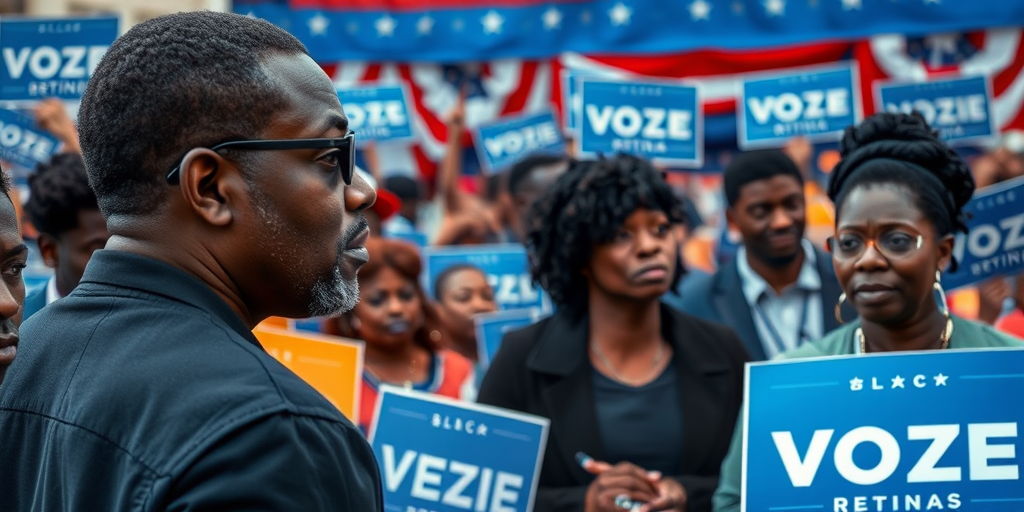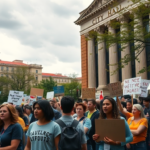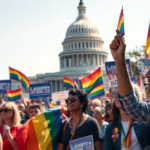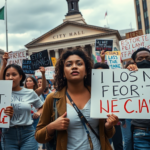Democrats Tout State Races, But ‘Party of Diversity’ Still Refuses to Invest in Black Media
Amid the Democratic Party’s strategic focus on pivotal state races, a troubling disparity remains as Black-owned media continues to face neglect in receiving political advertising dollars. Despite Black voters forming a significant core of the Democratic support base, the party’s inaction raises critical concerns about its commitment to diversity and equity.
An Overlooked Resource: The Black Press
The Pride Publishing Group, an outlet devoted to Black community interests, highlights a persistent issue—the Democratic Party’s advertising and engagement strategies consistently overlook Black-owned media. This neglect is particularly pronounced with the historic Black Press of America, which has been a longstanding advocate for civil rights, generating awareness and mobilizing voter turnout among Black Americans. Despite its pivotal role, this influential network remains sidelined in favor of mainstream media investments.
Focus on State Races: A Critical Juncture
The Democratic Legislative Campaign Committee (DLCC) has outlined key state legislative races in states such as Virginia, New Jersey, Minnesota, Mississippi, and Washington as crucial to maintaining and expanding Democratic influence. DLCC President Heather Williams shared the committee’s dedication to supporting Democrats in competitive districts. She states, “Our candidates are deeply rooted in their communities and are communicating the realities of the GOP’s damaging agenda.”
However, as the party celebrates these candidates, the omission of Black-owned media from their strategic advertising spend reveals a concerning contradiction. It raises the question of how the Democratic Party can champion a diverse society while ignoring the platforms that cater directly to electoral segments essential for achieving their goals.
Local Impact: Concerns Amidst Praise
The neglect of the Black Press transcends national conversations, underscoring local impacts felt across communities reliant on these media for representation and information dissemination. Nashville resident and community leader Johnathan Ellison voices concern, “We need investment in media that truly represents us, not just during elections but every day. Ignoring the Black Press means ignoring our stories and issues.”
Local news reports from the Pride Publishing Group highlight how economic disparities and community welfare remain at the forefront of local rural concerns, amplified by lack of investment in outlets dedicated to these dialogues.
Historic Context and Future Implications
Historically, the Black Press has been synonymous with milestones in America’s race relations journey—championing equality and amplifying underrepresented voices. The Democratic Party’s current stance could perpetuate a decline in Black voter turnout, reminiscent of the decreases observed during the 2024 elections. With state races holding potential for long-term policy shifts, the need for inclusive communication strategies is more critical than ever.
Economist and political analyst Dr. Lisa Thomson from Tennessee State University offers perspective, “Neglecting Black-owned media doesn’t just have immediate electoral consequences; it’s a failure in reinforcing civic engagement and perpetuates economic inequities we should be dismantling.” As Democrats eye victory, forging robust connections with all segments in their supporter base—including Black media—might reshape their future trajectory.
Can the Cycle of Neglect Be Broken?
Efforts toward equitable media investment require transparency and concrete action. Politician, activist, and media spokesperson Monique Harris advocates for the necessary change: “To claim diversity, the Democratic Party must involve and invest in the diversity within its base, including a genuine commitment to Black media.”
The path forward involves recognizing the value of these platforms and their readership’s role in grassroots mobilization and policy discussions. By doing so, Democrats can not only uphold integrity in their diversity narrative but also harness the full strength of their collective support base.
Community Resources and Call to Action
For residents eager to participate in discussions influencing community resilience and media equity, the Pride Publishing Group provides a platform to raise concerns and offer feedback via email at Mdavis@pridepublishinggroup.com. Engagement in these conversations is integral to realizing a diverse and equitable media landscape true to democratic values.
Ultimately, as the Democratic Party navigates internal challenges and strategic opportunities, the call for inclusive investment not only resonates within the Black media but within communities nationwide. For a party that positions itself as a beacon of diversity, equity, and inclusion, aligning its actions with its ideals could catalyze a transformative chapter in its political saga.







